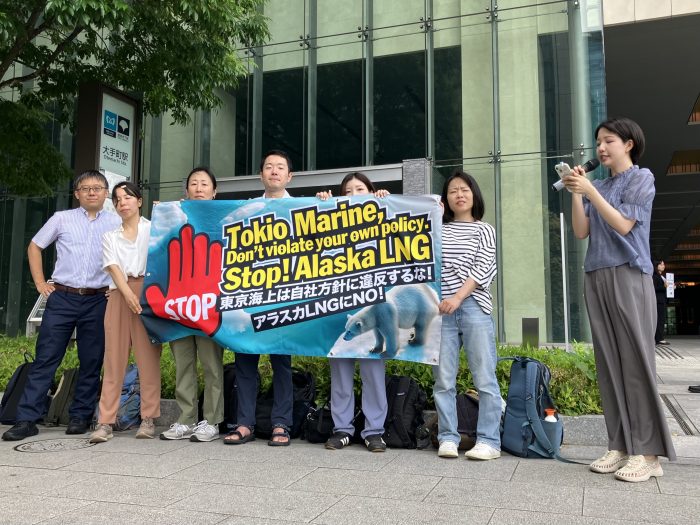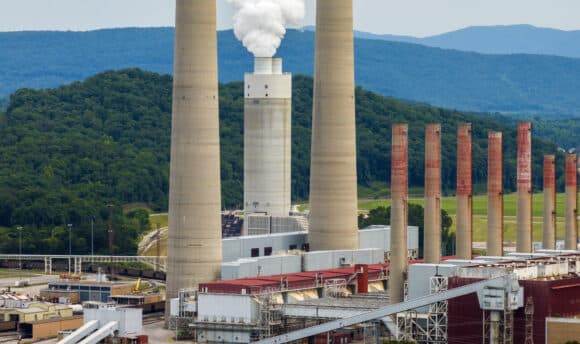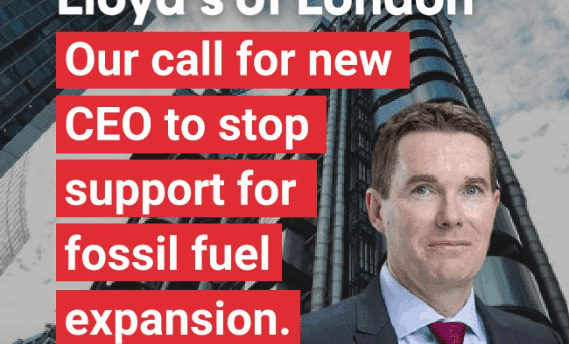18 global insurers and 10 banks have excluded the Alaska LNG from their support – Environmental NGOs urged Tokio Marine to comply its policy at the annual general meeting –
Japan Center for a Sustainable Environment and Society (JACSES)
Friends of the Earth Japan
Mekong Watch
Rainforest Action Network (RAN)
Oil Change International
First published here – By investigating the planned Alaska LNG project in the US using the Oil and Gas Policy Tracker database (*1) of Reclaim Finance, a French environmental NGO, it is revealed that 18 global insurance companies and 10 banks, including Allianz, AXA and three major Japanese non-life insurance companies, have excluded fossil fuels projects in the Arctic, including the Alaska LNG project, from their support.
Table: major insurance companies and banks with policies to exclude support for fossil fuel projects in the Arctic, including the Alaska LNG project

The Alaska LNG project plans to extract natural gas from the North Slope in northern Alaska and transport it via a 1,300 km pipeline to the Nikiski LNG terminal in the south, where it will be liquefied and exported. At the Japan-US Summit held in February this year, it was agreed that Japan would expand its LNG imports from the US and promote the project (*2).
However, in the report published in 2023 by the International Energy Agency: “Net Zero Roadmap: A Global Pathway to keep the 1.5°C Goal in Reach” (*3) reiterated the conclusion of the 2021 report that in order to achieve net-zero greenhouse gas emissions by 2050, there is no room for developing new fossil fuel extractions. So the Alaska LNG project is not aligned with the 1.5 degree goal of the Paris Agreement.
The North Slope, which is the natural gas drilling site for the project, is adjacent to the Arctic National Wildlife Refuge (ANWR), a traditional living area of the indigenous Gwich’in people and one of the most pristine areas with diverse wildlife. Gas extraction in this region risks serious human rights violations and environmental damage (*4). Accident response technology is not fully established for gas mining in the Arctic (*5). Recently, JERA, a major Japanese utility company, announced its interest in the Alaska LNG project. However, with 18 major global insurance companies excluding the project from their insurance underwriting, the project would not be feasible if the insurance companies adhered to their policies.
Tokio Marine has already adopted a policy of ending new underwriting and investment in oil and gas extraction projects in the Arctic north of latitude 66°33’, and the North Slope, located at 69°03′ north latitude, is excluded (*6).

On June 23, environmental NGOs took action in front of the venue of the annual general meeting of Tokio Marine, calling on shareholders to demand that Tokio Marine stop underwriting fossil fuel projects, including the Alaska LNG project.
Therefore, we strongly urge Tokio Marine to stop underwriting fossil fuel projects, including the Alaska LNG project.
Note:
*1: https://oilgaspolicytracker.org/
*2: https://jacses.org/en/560/
*3: https://www.iea.org/reports/net-zero-roadmap-a-global-pathway-to-keep-the-15-0c-goal-in-reach
*4: https://earthjustice.org/case/alaska-lng-project
*5:https://www.unii.ac.jp/erina-unp/archive/wp-content/uploads/2014/01/pp11810_tssc.pdf
*6:https://www.tokiomarinehd.com/en/sustainability/environmental_social_risks.html
Contact:
Japan Center for a Sustainable Environment and Society (JACSES)
Yuki Tanabe
tanabe@jacses.org
Marika Kita
kita@jacses.org



